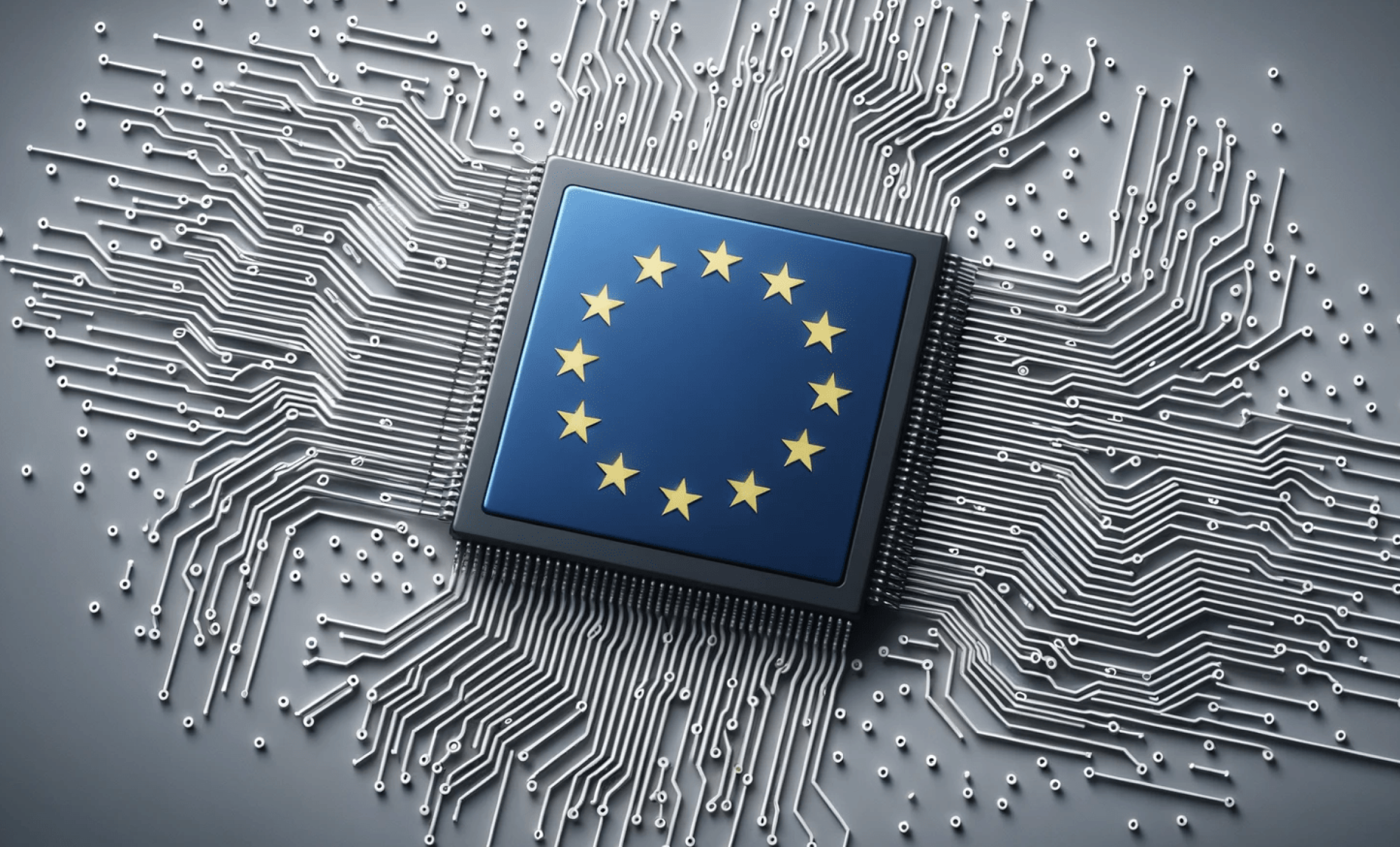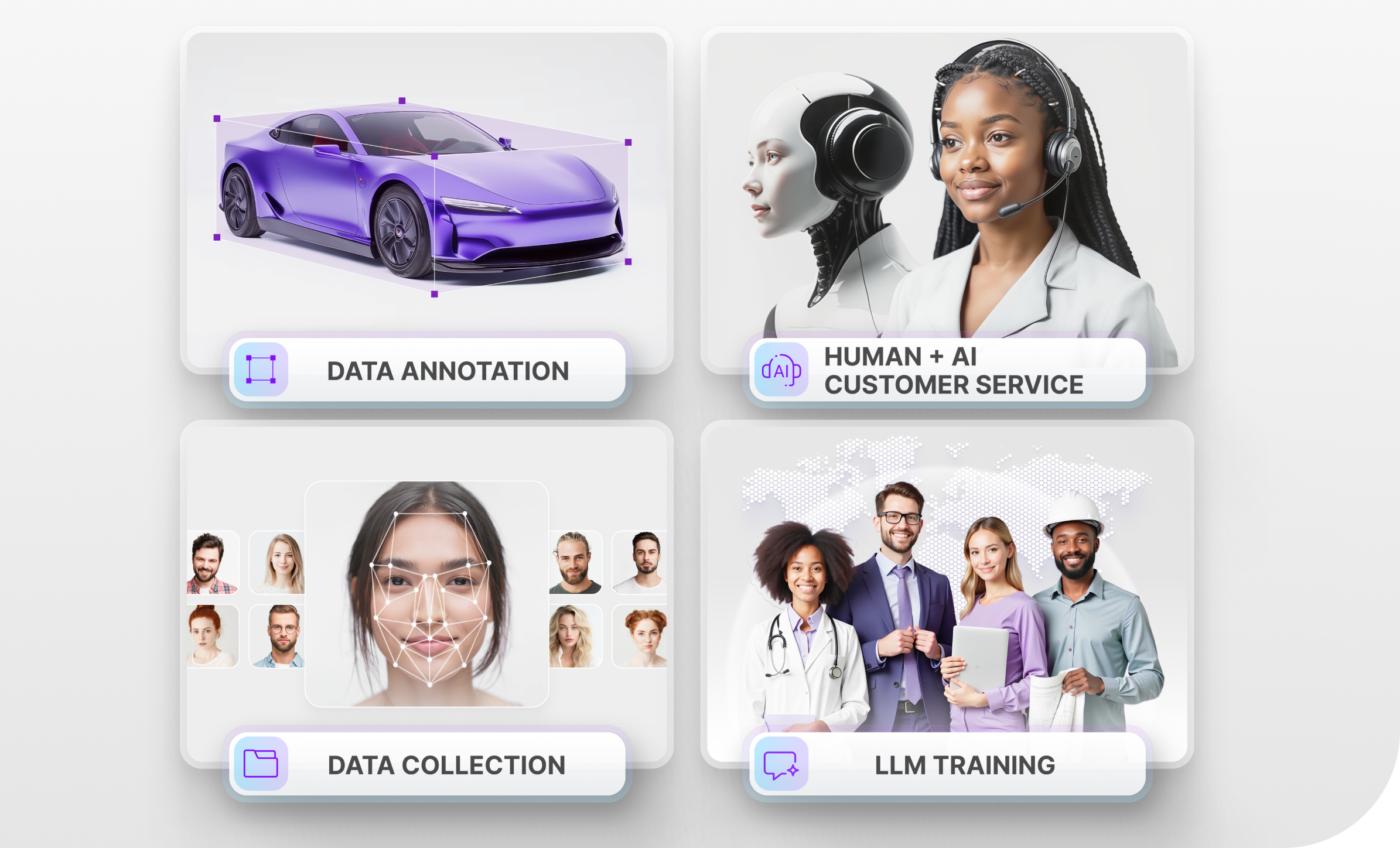Navigating the Legal Minefield of AI/ML Outsourcing: What You Need to Know in 2025
Outsourcing AI and ML projects is increasingly popular, offering companies a faster path to innovation while avoiding the high costs of in-house expertise. These powerful tools are transforming industries by boosting efficiency, agility, and delivering personalized customer experiences. However, with sensitive data, intellectual property, and regulatory compliance at stake, the legal side of these projects is crucial.If legal concerns aren’t addressed during contract negotiations, they can lead to disputes, penalties, or loss of competitive advantage. Before signing any agreement, it’s essential to understand potential pitfalls to ensure a smooth and successful partnership.
Understanding the Risks of Outsourcing AI/ML Projects

Outsourcing AI/ML projects allows businesses to unlock a plethora of benefits, and with that come some inherent risks. Some of the most prominent risks include:
- Data security and privacy – With the proliferation of technology this is of particular concern, because there has never been a higher risk of breach. If unauthorized individuals get your data, or worst case scenario, it is misused or shared in ways you didn’t expect, this can not only damage your organization’s reputation, but also give rise to legal and regulatory penalties as well.
- Intellectual property (IP) issues – AI and Machine Learning outsourcing requires serious contemplation of Intellectual property because unless terms are defined very clearly, this can lead to dispute of work intellectual property rights. From the algorithms to data to the final product, businesses need to define their operating agreements to define their intellectual property in order to protect their rights and make sure they do not lose control over proprietary innovations.
- Legal and Ethical Standards – Complying with legal and ethical standards is a must for ML and artificial intelligence outsourcing to avoid regulatory penalties and using the technology responsibly. In order to maintain trust and accountability, businesses must align projects with data protection laws, industry regulations, and ethical guidelines around fairness, transparency, algorithmic bias, and more.
- Vendor Reliability and Risk of Non-Compliance – The importance of vendor reliability cannot be overstated as poor performance or delays can result in non compliance and the project in delays. Using an unreliable vendor has risks associated with your money and reputation.
Legal Framework: The EU AI Act and Other Relevant Laws

The laws and regulations surrounding AI/ML outsourcing are constantly changing which is not good for the business climate. This prompted lawmakers to create the EU AI Act delivering clear rules on the creation and implementation of AI technologies. Knowing these laws, plus other related regulations, is important for maintaining compliance, reducing legal issues, and dealing with the intricate world of AI regulation.
The EU Artificial Intelligence Act (AI Act) of 2024 is a far reaching regulatory framework to protect the safe and ethical use of AI technologies. Its main provision includes the risk classification of AI systems depending on the risk level of AI applications, with high risk systems subjected to tougher compliance standards. Anyone deciding to outsource their AI/ML projects need to tread the regulatory waters carefully, as a high risk system needs more transparency, better documentation, and detailed audit trails for accountability. In the same vein, the AI act makes vendors responsible for harm that their AI system may cause, thus requiring businesses to choose such partners that can fulfill these requirements. Due to these regulations, companies undertake a high impact on outsourcing as their vendors will have to comply with act’s requirements in guaranteeing safety and legal responsibility as well as transparency of the use of AI.

- Data Protection and Privacy Laws: The main one you need to be mindful of is the GDPR, which affects cross border flows of data and governs data transfers across borders, forcing businesses to assure that it’s in their interest to outsource AI/ML projects. Another thing to keep in mind along with this is The California Consumer Privacy Act (CCPA), which is another law that also gives California residents the right to know what personal data a business has in regards to them, and to request their data be removed and businesses stopped selling that information.
- Intellectual Property Issues – There should be clear agreements between client and vendor regarding ownership of AI/ML systems, the algorithms, models and the output results, including intellectual property. An important aspect of machine learning outsource is licensing models and intellectual property protection which describes how the intellectual property would be used and protected. Clear terms tell businesses which technology they can access and use, and what they can’t touch based on proprietary assets.
- Ethical and Fairness Regulations – To make sure that outsourcing systems are ethical and fair, companies must choose vendors who guarantee their willingness to be transparent and unbiased when developing algorithms. Vendors that can identify biases, mitigate them, provide fairness, and integrate AI systems with ethical guidelines, thus keeping businesses in legal compliance as well as maintaining trust from their consumers, are the ones that businesses must deal with.
Due Diligence: Selecting the Right AI/ML Vendor

If you are outsourcing AI/ML projects it is important to do thorough due diligence to make sure that your chosen vendor has legal, compliance, and ethical standards in place. This involves checking vendor background to see whether they adhere to data protection regulation, like GDPR and CCPA. You should also make sure that the vendor has a robust legal framework for data handling and intellectual property. Checking if the vendor has been compliant with the industry specific regulations and guidelines will help shield you from legal complicity in the future.
Next, you should evaluate the vendor’s data security, risk management, and ethical practices. The project should be implemented with robust data protection measures and security protocols by the vendor to protect sensitive information. It’s no less important to make sure that the vendor has implemented risk management measures to recognize, assess and deal with possible risks. In addition, vendors should prove their adherence to fair and transparent application of AI, specifically algorithmic biases. Checking to see if the vendor has the certifications you are looking for and that they are in compliance with the EU AI Act as well as other regulations to give you confidence in the vendor’s highest standards and delivery of a responsible, compliant AI/ML solution.
Managing Legal Risks in Outsourced AI Projects
It is essential to robustly contract for robust vendor contracts to help in managing risks and in successful outsourcing machine learning. In contracts, data protection should be a very inclusive clause on how certain data will be handled, stored, and shifted safely for purposes of GDPR and CCPA and other regulations. In addition, liability and indemnification clauses are needed that detail the vendor’s liability for (and indemnification from) any breaches, errors, or harm to the business through its uses of AI systems. Moreover, there should be transparency and audit rights that will allow the business to keep track of the vendor’s performance, the usage of the data and comply with the standards agreed on in the course of the whole project life cycle. These clauses provide protection to covering business interests and accountability of vendors.
While outsourcing AI based projects involves high risk, it is very crucial to continuously monitor the vendor’s compliance with the AI regulation with respect to the specific project to determine if all the legal requirements are being met while it lasts. This also means that the vendor adheres to EU AI Act principles and in particular follows the principles of transparency, fairness and accountability when designing such AI systems. Additionally, it becomes a necessity to strictly maintain compliance with GDPR or, at the very least, in the case of handling of personal data, to operate in line with the GDPR (which means you should be transparent about data processing to make sure that it is lawful). These responsibilities must be reviewed on a regular basis through audits and reviews to confirm that the vendor is meeting them, reducing data breaches, non compliance penalties, and potential legal issues. Managing these risks proactively protects the businesses’ interests and guarantees that their AI initiatives remain legally compliant.
Best Practices for Outsourcing AI/ML Projects
While outsourcing AI/ML projects can help you drive innovation and increase efficiency, it’s essential to do it in the right way; businesses need to follow best practices to minimize these risks and bring the most value to the table. Below are some best practices you should consider when outsourcing your AI/ML project:
- Ensuring Ethical AI and Fairness in Outsourced Systems – The ethical AI and fairness of AI outsourced systems is ensured by choosing vendors that will contribute to transparent and unbiased algorithm development. Moreover, businesses have to partner with vendors that practice to identify, prevent and correct biases, to guarantee fairness and to lead AI systems toward ethical principles in order to avoid who not only risks legal compliance but also consumers’ trust.
- Continuous Monitoring and Auditing of AI Systems – To maintain legal, ethical, and operational standards of outsourced AI/ML projects, continuous monitoring and auditing of AI systems is a necessity. Regular audits can surface potential biases, security vulnerabilities, and performance problems for early detection and businesses can promptly correct when the AI system is run as planned throughout its lifecycle.
- Maintaining Flexibility in Contracts for Evolving Legal Standards – Contracts for outsourced AI/ML projects should be retained flexible enough to adjust to changing AI/ML legal standards and regulations. Likewise, contracts should have provisions for regular updates and adjustments such that just in case new laws, for instance EU AI Act or changes to data protection regulations kick in, they will be in compliance without renegotiation.
Case Studies and Real-World Examples
AI/ML Outsourcing entails legal pitfalls, which can be really risky to a business if not properly managed. A common problem is lack of protection of intellectual property (IP), including ownership rights in algorithms, and in data models and the results derived from them. Additionally, it can also lead to violation of regulations like GDPR or CCPA and in turn attract hefty fines and loss of reputation if data privacy and security issues are not taken care of. . When an AI system harms or performs below expectation, clear liability clauses are also lacking, opening the business to legal action. Finally issues around vendor accountability, transparency and compliance with emerging AI regulations, such as the EU AI Act can trigger noncompliance penalties or ethical concerns. The avoidance of legal and operational pitfalls is extremely important to ensuring that legal and operational interests are protected during contract negotiations and during the course of the project.
Achieving successful results for an AI/ML outsourcing agreement relies on clear and open communication between all parties involved, outlining clear-cut expected results and using a solid legal framework. Past experience also teaches us important lessons, particularly with regard to detailed contracts that spell out every aspect (data protection, intellectual property, litigation, compliance with regulations, etc.). In collecting these inputs, businesses should first choose vendors that have a good track record and an established track record of utilizing ethical AI practices, designating clear transparency and accountability throughout the project. Ongoing monitoring and regular audits are necessary as well, to ensure the AI system follows its intended purposes and continues to abide with changing legal standards. The positive experiences shared from previous successful outsourcing arrangements and taking risks into account beforehand can help businesses build lasting fruitful partnerships that will fuel innovation and get around legal and operational issues.
Key Takeaways and the Future of AI/ML Outsourcing
Mindy Support operates with full legal compliance, ensuring AI/ML outsourcing aligns with all laws and regulations. We prioritize data privacy, IP protection, and adherence to frameworks like GDPR and the EU AI Act.
With stricter rules on ethical AI and accountability emerging, businesses must stay ahead of regulations, adapt strategies, and choose trusted vendors. Mindy Support helps you mitigate risks, stay compliant, and maximize AI-driven innovation—all while staying firmly within the law.






